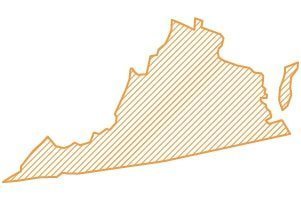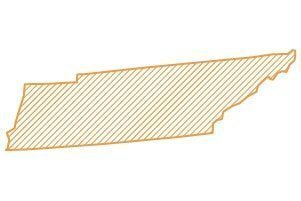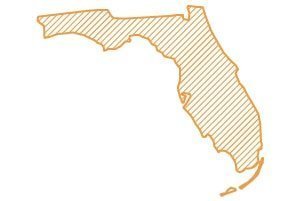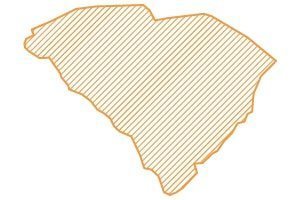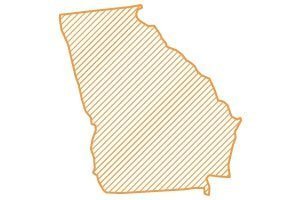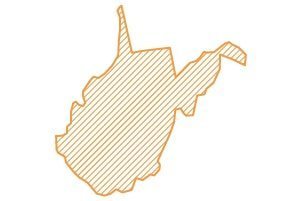North Carolina boasts four American Library Association (ALA)-accredited library science degree programs, trailing only New York as the state with the most programs. Led by its flagship university, the University of North Carolina at Chapel Hill, the library and information science education options offered in North Carolina are robust and highly ranked. Beyond its schooling options, North Carolina is an excellent state for prospective librarians seeking careers because it has large public library systems throughout the state and numerous academic and school libraries.
North Carolina has four Master of Library and Information Science (MLIS) programs accredited by the ALA and another library science master’s program for school librarianship licensure that is accredited by the American Association of School Librarians (AASL). Keep reading to learn more about these programs and see if they are the right fit for you.
Library Science Programs Currently Accepting North Carolina Applicants
Quick Facts
- Number of ALA-accredited MLIS programs in North Carolina: 4
- Number of fully-online MLIS programs in North Carolina: 3
- Number of MLIS programs that require applicants to have undergraduate backgrounds in library science: 0
- Number of MLIS programs that require GRE scores as a part of the application process: 1
- Average yearly tuition cost for a North Carolina MLIS program: $10.5k
Library Science Programs in North Carolina
There are a variety of reputable library science programs available in the state of North Carolina.
Master of Library and Information Science (MLIS) in North Carolina
The state of North Carolina boasts five different Master of Library and Information Science programs. Many of those programs are American Library Association (ALA) accredited, meaning that the college or university’s library science degree program meets a specific set of standards set forth by the American Library Association, which serves as a supporting and governing body for America’s various libraries.
MLIS programs in North Carolina with ALA accreditation status include:
- University of North Carolina at Chapel Hill (on-site program delivery)
- University of North Carolina at Greensboro (100% online program delivery)
- Eastern Carolina University (100% online program delivery)
- North Carolina Central University (hybrid options; can be 100% online)
One North Carolina MLIS program does not offer ALA accreditation status
- Appalachian State University (100% online)
To learn more about these programs’ more specific offerings and details, continue reading.
Online Library Science Programs in North Carolina
- Program Name: Master of Library Science (MLS)
- Modality: Online with a blend of synchronous and asynchronous classes
- GRE Required?: No
- Program Length: Approximately two years
- Tuition: $4,291/year for in-state students; $15,739 for out-of-state students
- Program Overview: This MLS program is fully online and a great option for part-time students. It blends synchronous sessions with asynchronous coursework. Two main program pathways are offered – school libraries and public libraries.
- Key Highlights:
- Compared to other MLIS programs across the state, Appalachian State’s program comes with one of the smallest price tags.
- This MLIS program offers options for students interested in K-12 school libraries as well as public libraries.
- Additional Considerations: Students can earn the credits needed to become K-12 school certified as well as NC public library certified concurrently.
- Accreditation: Currently, Appalachian State University’s MLS program is not ALA accredited.
University of North Carolina at Greensboro (UNCG)
- Program Name: Master of Library and Information Science (MLIS)
- Modality: Online with synchronous classes
- GRE Required: No
- Program Length: Approximately three years
- Tuition: $6,422/year for in-state students; $21,137/year for out-of-state students
- Program Overview: UNCG’s MLIS program is designed to give students professional experiences that prepare them for public libraries, K-12 school libraries, academic libraries, and other information specialist facilities. There are licensure track and concentration options for K-12 school library media, instructional technology, and public librarianship.
- Key Highlights:
- UNCG’s MLIS program is highly customizable – students can select from a variety of elective courses to shape their MLIS degree to fit their career goals.
- UNCG’s MLIS program is ranked best online master’s program by College Choice and Best Online Master’s in Library Science by Affordable Colleges Online.
- Additional Considerations: This program requires all MLIS students to take some courses in technology, regardless of program concentration.
- Accreditation: This program is ALA accredited.
Eastern Carolina University (ECU)
- Program Name: Master of Library Science (MLS)
- Modality: Online with asynchronous classes
- GRE Required: No
- Program Length: Three years
- Tuition: $5,496/year for in-state students; $19,302/year for out-of-state students
- Program Overview: This program is completely asynchronous, meaning students do not meet together for scheduled class times. Offering tracks for public, academic, and K-12 school librarianship, it is one of North Carolina’s most affordable MLS options.
- Key Highlights:
- ECU boasts a wide mentor program network for students, allowing them to make professional connections throughout their educational experience.
- ECU is one of the largest producers of school library media coordinators in the state of North Carolina
- Additional Considerations: This program heavily emphasizes preparing students to work in a multicultural, global society. Ethical and inclusive frameworks are a big focus in all areas of ECU’s MLS study.
- Accreditation: ECU currently holds a provisional ALA accreditation – there is a final comprehensive review of the program scheduled for fall 2025.
Bachelor’s in Library Science in North Carolina
Bachelor’s degrees in library science aren’t as common, but there are two programs available in North Carolina. Often, these degree programs aren’t library science specific, but are focused in information or data science, making them excellent stepping stones to prepare for an eventual MLIS program enrollment.
University of North Carolina at Chapel Hill
- Program: Bachelor of Science in Information Science (BSIS)
- Modality: In-person
- GRE Required: Not applicable
- Program Length: Four years
- Tuition: $8,994/year for in-state students; $41,203/year for out-of-state students
- Key Highlights:
- UNC Chapel Hill offers a dual degree program with the BSIS. Students enrolled in the BSIS can also complete graduate-level coursework to receive credits toward an eventual Master of Information Science or Master of Library Science degree.
- Graduates of this program go to work for top companies, including Google, Credit Suisse, LinkedIn, Twitter, SAS, Atlantic BT, Nielsen-Norman, Red Hat, and Capital One, as well as government organizations and non-profits.
- Additional considerations: UNC Chapel Hill’s BSIS program is designated as a STEM program, which offers graduates of the program more STEM-related opportunities upon graduation.
- Accreditation: Not applicable
University of North Carolina at Greensboro (UNCG)
- Program: Bachelor of Science in Information Science (BSIS)
- Modality: In-person
- GRE Required: Not applicable
- Program Length: Four years
- Tuition: $7,661/year for in-state students; $24,012/year for out-of-state students
- Program Overview: This four-year program prepares students to work in a variety of information science-related professions. While some students may continue to complete an MLIS degree, that is not the only choice – many enter leadership roles in technology-related fields as well.
- Key Highlights:
- UNCG’s BSIS program allows students to choose specific concentrations that best align with their interest and future career goals, such as Geographic Information Systems (GIS), Information Analytics, Information Technology Training & Development, or Organizational & Community Informatics.
- This BSIS program has multiple internship opportunities built in, which gives students more hands-on experiences during their studies.
- Additional Considerations: This interdisciplinary program offers students a wide breadth of information science experiences, but this can also mean that students don’t get to dig deeply into different options in the field.
- Accreditation: Not applicable
PhD and Doctoral programs in Library Science in North Carolina
Students who already hold an MLIS are sometimes interested in continuing their education with a Ph.D. in library and information science. Whether it is to gain a deeper understanding of the field, complete research, prepare for higher-level positions, or become eligible to teach at the collegiate level, a Ph.D. in library and information science can give a professional the educational edge they need to advance toward their goals.
Currently, there is only one Ph.D. program for Library and Information Science available in North Carolina:
University of North Carolina at Chapel Hill
- Program: Doctor of Philosophy in Library and Information Science
- Modality: In-person
- GRE Required: No
- Program Length: Five years
- Tuition: $12,751/year for in-state students; $31,408 for out-of-state students
- Key Highlights:
- Over half of the credit hours to be completed in this course are geared toward the student’s specific career interests and specializations.
- UNC Chapel Hill’s School of Information and Library Science typically funds the entirety of a student’s five years of study.
- Additional Considerations: This program requires students to enter it with a strong background in information retrieval, knowledge management, and communication.
- Accreditation: This program is ALA-accredited
Career and Licensing Requirements for Librarians in North Carolina
Like other states, North Carolina requires librarians to meet specific requirements to qualify for employment in its various institutions. While public libraries and academic libraries’ requirements aren’t as stringent, there are some specific steps required for K-12 school librarianship.
School Librarian Requirements in North Carolina
While requirements for public service and academic librarians tend to vary, there are specific licensing requirements for school librarians in North Carolina. Potential K-12 school librarians must complete some specific steps required to become licensed to work as a school media coordinator in North Carolina.
- Have a bachelor’s degree or higher in any subject area.
- Hold a valid teaching license in the state of North Carolina.
- Have a completed MLIS degree, which includes a completed internship experience in a K-12 school library environment.
- Pass the Praxis exam for state-level licensing to work as a school media coordinator. A minimum passing score in North Carolina is 148.
Salary and Job Outlook for Librarians in North Carolina
The Bureau of Labor Statistics currently lists the following salary averages and growth projections for librarians in America:
- Average yearly salary: $64,329 (around $30.92 per hour)
- Growth projections: Employment of librarians is expected to grow 2% between 2024 and 2034. While this growth rate is slower than average, around 13,500 openings are projected for each year – this accounts for retirements, career changes, and other opening opportunities.
How do these numbers compare to North Carolina’s data?
- Average yearly salary for a North Carolina librarian: In 2024, the median annual wage for librarians and media specialists in North Carolina was approximately $64,320. Salaries can vary based on location and experience.
- This average is impacted by a variety of factors, including location, institution type, and local cost of living adjustments. For example, librarians in rural parts of the state earn less on average.
- Growth projections in North Carolina: In North Carolina, an estimated 450 librarian positions become available each year, mainly due to retirements and workforce transitions.
FAQs about Library Science Programs in North Carolina
Do you need a master’s degree to become a public service librarian in North Carolina?
It depends! Many public libraries prefer their librarians to hold MLIS degrees, but some might make exceptions or have other employment requirements. Prospective applications should check each system’s individual employment requirements to get a better idea of what educational background they will need prior to applying for school.
Do you need a master’s degree to become a K-12 school librarian in North Carolina?
Yes. The North Carolina Department of Public Instruction (NCDPI) requires K-12 school librarians (or media coordinators) to have an MLIS degree along with their teaching licensure. In North Carolina, school librarians are considered teachers and held to the same standards as their classroom counterparts.
How long does it take to earn an MLIS degree?
MLIS programs are flexible, as many of their students are balancing full or part time work alongside their studies. The typical MLIS degree requires students to earn 36-48 credits (depending on the school) to graduate. Part time students can expect to take around two and a half to four years to complete a degree, and full time students can expect to take around one and a half to two years to complete a degree.
What jobs are available for MLIS grads in North Carolina?
Library-centric skills and knowledge are in demand in other workplaces. This opens more opportunities for MLIS grads to enter a variety of fields. Some jobs for MLIS grads in North Carolina include…
- Digital assets manager
- Public librarian
- K-12 school librarian
- Academic librarian
- Special collections librarian
- Technical services librarian
- Archivist
- Media & publishing professional
- Museum or cultural heritage roles
- Corporate librarian
- Information management roles

